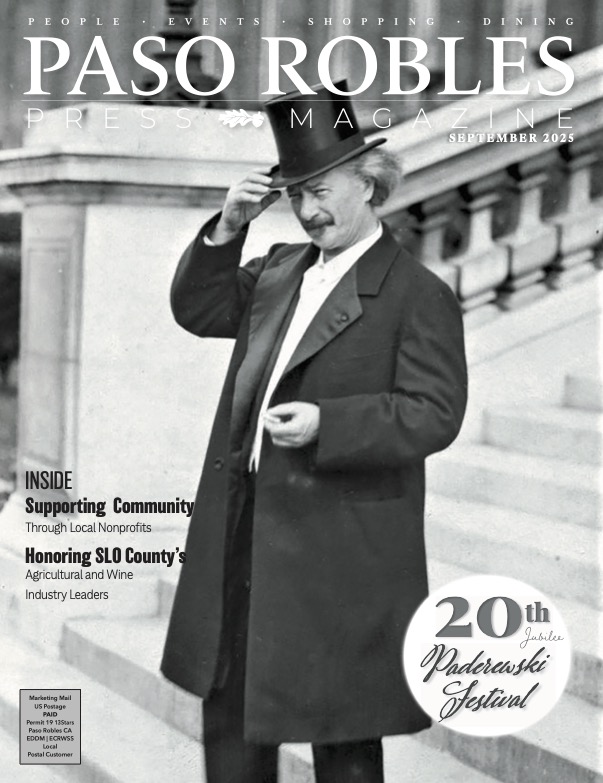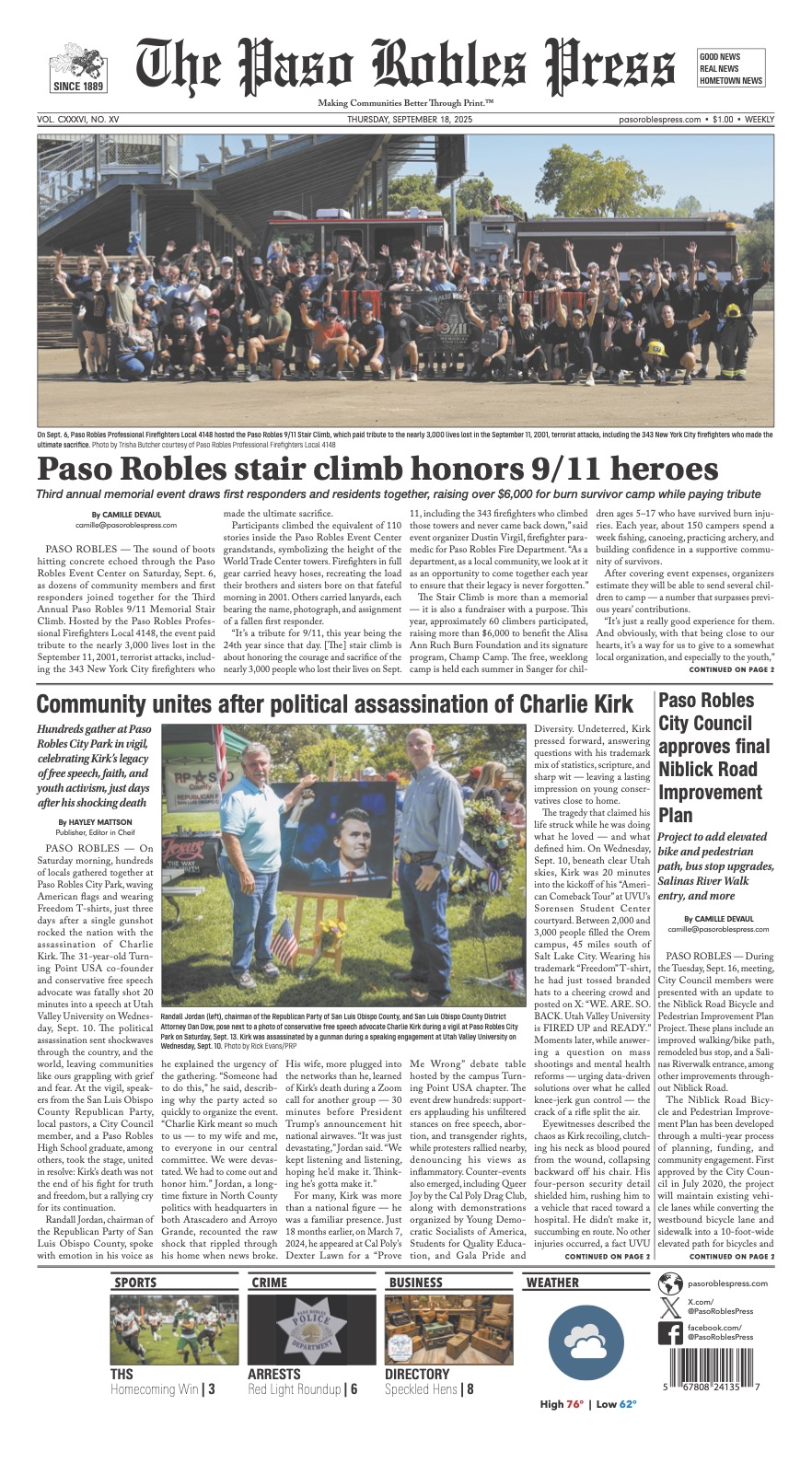Templeton Fire and Emergency Services needs help to protect the town’s population across eight square miles. The 30-member volunteer department is asking for support from the voters in a special, all-mail ballot election on August 27, 2019, to levy a tax on real property to increase department revenue for 24/7 staffing. Currently, nighttime shifts are covered only when firefighters are available.
“Since 2010, Templeton has seen a 75 percent increase in service calls,” Templeton fire chief Bill White said. “Cal Fire is a valuable partner in Templeton but the nearest station (Engine 30) covers 60 square miles and is already stretched thin. Over the past two years, they have been unable to respond to 13.9 percent of Templeton’s 911 emergency calls because they were already committed to other incidents.”
For 120 years, active volunteer firefighters have kept the department operating and government grants have provided relief. But a steadily growing community, combined with a lack of proportional revenues, has placed tremendous pressure on the department’s shoestring budget.
Make-or-break community support
In 2000, the population stood at 4,687. In 2009, Templeton grew to more than 7,600. That year, a benefit assessment proposition died on the ballot. In 2015, a proposal to levy $13 fees to support firefighting costs also failed.
In 2017, the Templeton Community District Board of Directors voted to create a Community Facility District for new residential and commercial development to enforce payment of development fees for future emergency services but the fund will take time to accrue.
An unincorporated community, Templeton cannot access the 8.4 cents per dollar of its $1.6 million property tax revenue that municipalities typically collect to fund emergency services. Occasional fundraisers and donations help but they cannot sustain an annual budget. The newly proposed tax is set at $180 per parcel for fiscal year 2020/2021 and would be capped at two percent thereafter in any given year.
In Templeton, 60 percent of all callouts are for medical emergencies.
“Once a person stops breathing, it takes just four to six minutes for brain deterioration to occur,” White said. “In Templeton, the average response time for fire and emergency services is six minutes. Even a one-minute delay can be critical. Without adequate tax funding, there are times when Templeton emergency responders won’t be available to 911 calls for help.”










